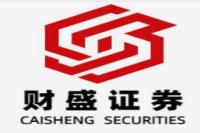IPO Withdrawal: A Deep Dive into the ZGMS Research Institute Case and its Implications for the Chinese Stock Market (Meta Description: ZGMS IPO withdrawal, Chinese stock market, IPO process, regulatory scrutiny, investment risks, due diligence, financial reporting, audit challenges, corporate governance)
Imagine this: You're a seasoned investor, meticulously researching potential investments. You stumble upon a promising IPO, a seemingly solid company poised for growth. Then, BAM! The offering is abruptly withdrawn. What happened? Was it a red flag you missed? This isn't just another business news story; it's a masterclass in understanding the complexities of the Chinese IPO process and the crucial role of due diligence. Let's dissect the recent withdrawal of the ZGMS Research Institute's IPO application, examining the potential reasons, the implications for investors, and the broader context of the Chinese stock market. We'll uncover the hidden clues, the potential pitfalls, and the lessons learned – information vital for anyone navigating the thrilling, yet often treacherous, world of investment. This isn't just about one company; it’s about understanding the systemic risks and opportunities that define this dynamic market. We'll explore the nuances of financial reporting in China, the intricacies of regulatory scrutiny, and the importance of robust corporate governance – ultimately painting a picture far beyond the simple headline. Get ready to delve into the details, because the truth is often far more fascinating (and crucial) than the initial impression. This is your chance to upgrade your investment game, one insightful analysis at a time.
ZGMS Research Institute and the Sudden IPO Halt
The recent withdrawal of the Ma'anshan Mining Research Institute's (ZGMS) initial public offering (IPO) application from the Shanghai Stock Exchange's STAR Market (Science and Technology Innovation Board) sent ripples through the investment community. This wasn't a small player; ZGMS, a subsidiary of the large state-owned enterprise (SOE) China Steel Group, held considerable promise. The abrupt halt raises critical questions concerning the transparency and due diligence processes within the Chinese IPO system. Why did ZGMS, with its apparent backing from a major SOE, decide to withdraw its application? What does this say about the overall health and stability of the Chinese stock market? And, perhaps most importantly, what can investors learn from this unexpected development? The answers, as we'll explore, are far more nuanced than a simple "something went wrong."
The withdrawal, facilitated by the underwriter Citic Securities, highlights the potential challenges and risks inherent in investing in Chinese companies, especially those undergoing the IPO process. While the official reasons remain somewhat opaque (a common characteristic in such situations), we can speculate on several contributing factors based on industry knowledge and past experiences with similar events.
Potential Reasons Behind the Withdrawal
Several factors could have contributed to ZGMS's decision to withdraw its IPO application. These include:
-
Unforeseen Regulatory Hurdles: The Chinese regulatory environment for IPOs is notoriously stringent. Even companies that initially appear to meet all requirements can encounter unexpected obstacles during the extended review process. Changes in regulatory interpretations, new compliance requirements, or even minor discrepancies in the application could have triggered the withdrawal.
-
Financial Reporting Concerns: Robust and transparent financial reporting is critical for a successful IPO. Any concerns raised by regulators regarding the accuracy or completeness of ZGMS's financial statements could have led to the withdrawal. This might involve issues with accounting practices, revenue recognition, or off-balance sheet liabilities. A thorough audit trail is paramount, and any perceived weakness in this area could be a major red flag.
-
Internal Corporate Governance Issues: Weaknesses in corporate governance, such as conflicts of interest, inadequate internal controls, or concerns regarding management's integrity, can significantly jeopardize an IPO. Regulators scrutinize these aspects rigorously. Any hint of impropriety can derail the entire process.
-
Market Conditions: While less likely given the seemingly solid backing of China Steel Group, unfavorable market conditions or investor sentiment could have also influenced the decision. A sudden downturn in the market, or a change in investor appetite for companies in ZGMS's sector, might have prompted a strategic retreat.
-
Unexpected Liabilities or Contingencies: The discovery of unforeseen legal liabilities, environmental concerns, or other significant contingencies during the due diligence phase could also have prompted the withdrawal. These issues could dramatically impact the company's valuation and future prospects.
Let's not forget the human element. Decisions within large organizations are often complex, reflecting a balance of competing priorities, internal politics, and risk assessment. It's certainly plausible that internal disagreements or unforeseen complications led to the decision to withdraw, even if the specific reasons remain undisclosed.
The Importance of Due Diligence
This event underscores the absolute necessity of thorough due diligence for any investor considering participation in Chinese IPOs. Due diligence isn't just a box-ticking exercise; it's a critical process involving a deep dive into a company's financial health, operational efficiency, regulatory compliance, and management team. This includes examining not just the official filings but also exploring less visible aspects, such as industry dynamics, competitive landscape, and any potential geopolitical or macroeconomic risks. For international investors, understanding the nuances of Chinese accounting practices and regulatory requirements is especially crucial. This often requires engagement with local experts and a thorough understanding of the cultural landscape.
Implications for the Chinese Stock Market
The ZGMS withdrawal raises questions about the overall health and transparency of the Chinese IPO market. While the STAR Market aims to attract high-growth tech companies, incidents like this highlight the challenges of balancing innovation with robust regulatory oversight. It also serves as a reminder that even companies with strong backing can face unforeseen obstacles during the IPO process. This event could influence investor sentiment and potentially impact future IPO activity. Regulatory authorities may also re-evaluate their processes in light of this incident, aiming to enhance transparency and efficiency.
The situation underscores the need for both companies and investors to engage in comprehensive risk assessment before entering the Chinese IPO arena. It’s a market full of exciting opportunities, but those opportunities come with significant risks, and a comprehensive understanding of those risks is absolutely critical.
Navigating the Chinese IPO Landscape: Lessons Learned
The ZGMS case offers several valuable lessons for investors:
- Don't Rely Solely on Official Statements: Always conduct independent due diligence, going beyond the information presented in official filings.
- Understand the Regulatory Landscape: The Chinese regulatory environment is complex and constantly evolving. Keep abreast of changes and seek expert advice.
- Assess Systemic Risk: Consider broader macroeconomic factors and geopolitical risks that could affect a company's performance.
- Diversify Your Portfolio: Don't put all your eggs in one basket, especially in a volatile market.
- Seek Professional Advice: Consult with experienced investment professionals who have a deep understanding of the Chinese market.
Frequently Asked Questions (FAQs)
Q1: What are the main reasons behind the ZGMS IPO withdrawal?
A1: The exact reasons remain undisclosed, but potential factors include unforeseen regulatory hurdles, concerns about financial reporting accuracy, internal corporate governance issues, unexpected liabilities, and potentially even unfavorable market conditions.
Q2: What does this mean for investors interested in the Chinese stock market?
A2: It highlights the importance of thorough due diligence and a nuanced understanding of the regulatory and market risks associated with Chinese IPOs.
Q3: Is this a sign of broader problems in the Chinese IPO market?
A3: While the ZGMS case is noteworthy, it's not necessarily indicative of systemic issues. However, it does underscore the need for continued improvement in transparency and regulatory processes.
Q4: What steps can investors take to mitigate risk when considering Chinese IPOs?
A4: Conduct extensive due diligence, seek professional advice, diversify their portfolio, and maintain a keen awareness of the regulatory and market environment.
Q5: How does this compare to IPO withdrawals in other markets?
A5: While IPO withdrawals happen globally, the opacity surrounding the ZGMS case highlights some unique challenges within the Chinese context. The reasons for withdrawals are often more readily available in more transparent markets.
Q6: What is the future outlook for ZGMS?
A6: It's difficult to predict ZGMS' future. The company might re-file its IPO application after addressing any underlying issues, pursue alternative funding options, or even undergo significant restructuring.
Conclusion: A Cautionary Tale and a Call for Vigilance
The ZGMS IPO withdrawal serves as a cautionary tale for investors, emphasizing the need for rigorous due diligence, a deep understanding of the Chinese regulatory environment, and a nuanced appreciation for the complexities of the market. While the Chinese stock market offers significant opportunities for growth, navigating its intricacies requires careful planning, thorough research, and a healthy dose of risk awareness. This incident should not be viewed as discouraging, but rather as a valuable lesson in responsible investment strategies within this dynamic economic landscape. Remember, informed decision-making is the key to success in the ever-evolving world of finance.



